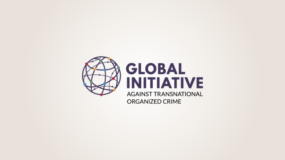The conviction and sentencing to suspended jail terms of investigative journalists Samira Sabou and Moussa Aksar for indirect defamation sets a dangerous precedent for Niger’s press freedom and fight against organized crime, said the Global Initiative Against Transnational Organized Crime (GI-TOC) in its first reaction to the judgment delivered on 3 January 2022.
Samira Sabou was found guilty of defamation and Moussa Aksar guilty of defamation and undermining public order. The two were sentenced to a one month suspended jail term and fine of CFA50,000, and a two-month suspended jail term, respectively.
Ms Sabou, investigative journalist and blogger, and Mr Aksar, director of the media site “L’Événement Niger”, had been charged in court on 09 September under Niger’s draconian cyber criminality law which provides for imprisonment of up to three years in respect to direct or indirect defamation. The two were prosecuted following a complaint by OCRTIS, due to their circulation on social media of an article published by the GI-TOC on 11 May 2021.
An agreement was then reached on 15 December between the OCRTIS, the Public Prosecutor of the Republic of Niger, and the GI-TOC, in which the complaint was withdrawn. However, the public prosecutor’s office did not honour its part of the agreement and instead of dropping charges, asked for a conviction at a hearing on 27 December.
Although the punishment falls short of the maximum allowed for by the law, and is below the six-month suspended jail term demanded by the prosecution, the convictions nonetheless set a dangerous precedent for journalists and regular citizens pursing uncomfortable questions of public interest in Niger.
The article published by the GI-TOC, ‘Strange Days for Hashish Trafficking in Niger’, reported on the trafficking of cannabis resin through West Africa to North Africa, and the seizure by Nigerien authorities of a large shipment on 02 March. The GI-TOC reported information from multiple sources concerning the subsequent reacquisition of part of the shipment by traffickers, who later moved the drugs to Libya and Egypt. After the article was published, OCRTIS requested a right of reply, which was posted directly and incorporated into the article by the GI-TOC.
The GI-TOC continues to stand by the full contents of its report, which is based on triangulated source information. More importantly, the GI-TOC’s article was never meant as an attack on the Nigerien state, OCRTIS or the Office of the President, a claim which has been used by the prosecution to justify the use of the cybercriminal law. On the contrary, the article offers important visibility on evolving drug trafficking challenges within the Sahel, essential for the advancement of efforts to address trafficking and the harm posed by it to nations and citizens within the sub-region.
The seizure of 200 kilos of cocaine on 3 January, allegedly found in the vehicle of the mayor of Fachi, as part of an operation led by OCRTIS near Agadez, is a win for Nigerien law enforcement. However, it also vividly illustrates the corruptive challenge of transnational organized crime and underlines the need for independent analysis and reporting on evolving drug trafficking challenges within the Sahel. These elements are essential for advancing efforts to counter the harm posed by drug trafficking to Niger and Nigeriens and underscore the need for a civil society setting where debate is free.
In fact, Nigerien citizens should be able to debate matters of public interest and raise questions in respect to their institutions without fear of persecution. The GI-TOC stands in support of Ms Sabou and Mr Aksar and will back them in their appeal against the sentence and any lobbying for the cyber criminality law of 2019 to be repealed or amended.
La condamnation à des peines de prison avec sursis des journalistes d’investigation Samira Sabou et Moussa Aksar pour diffamation indirecte crée un dangereux précédent pour la liberté de la presse et la lutte contre le crime organisé au Niger, a déclaré la Global Initiative Against Transnational Organized Crime (GI-TOC) dans sa première réaction à l’arrêt rendu le 3 janvier 2020.
Samira Sabou a été reconnue coupable de diffamation et Moussa Aksar coupable de diffamation et d’atteinte à l’ordre public. Les deux journalistes ont été condamnés respectivement à un mois de prison avec sursis et à une amende de 50 000 francs CFA et à deux mois de prison avec sursis.
Mme Sabou, journaliste d’investigation et blogueuse, et M. Aksar, directeur du site médiatique « L’Événement Niger », avaient été inculpés par la justice le 09 septembre en vertu de la loi draconienne sur la cybercriminalité du Niger qui prévoit une peine d’emprisonnement pouvant aller jusqu’à trois ans pour diffamation directe ou indirecte. Les deux journalistes ont été poursuivis à la suite d’une plainte de l’OCRTIS, en raison de la diffusion sur les réseaux sociaux d’un article publié par la GI-TOC le 11 mai 2021.
Un accord est alors intervenu le 15 décembre entre l’OCRTIS, le procureur de la République, et la GI-TOC, dans lequel la plainte a été retirée. Cependant, le parquet n’a pas honoré sa part de l’accord et au lieu d’abandonner les poursuites, a demandé une condamnation lors d’une audience le 27 décembre.
Bien que la peine soit inférieure au maximum autorisé par la loi et inférieure à la peine de six mois de prison avec sursis exigée par le parquet, les condamnations ont néanmoins créé un dangereux précédent pour les journalistes et les citoyens ordinaires qui poursuivent des questions sensibles d’intérêt public au Niger.
L’article publié par la GI-TOC, « Strange Days for Hashish Trafficking in Niger », faisait état du trafic de résine de cannabis à travers l’Afrique de l’Ouest vers l’Afrique du Nord, et la saisie par les autorités nigériennes d’une importante cargaison le 02 mars. La GI-TOC a rapporté des informations provenant de plusieurs sources concernant la réacquisition ultérieure d’une partie de la cargaison par des trafiquants, qui ont ensuite transporté la drogue vers la Libye et l’Égypte. Après la publication de l’article, l’OCRTIS a demandé un droit de réponse, qui a été directement posté et intégré à l’article par la GI-TOC.
La GI-TOC continue de s’en tenir à l’intégralité du contenu de son rapport, qui est basé sur des informations de source triangulées. Plus important encore, l’article du GI-TOC n’a jamais été conçu comme une attaque contre l’État nigérien, l’OCRTIS ou le bureau du président, une affirmation qui a été utilisée par le parquet pour justifier l’utilisation de la loi sur la cybercriminalité. Au contraire, l’article offre une visibilité importante sur l’évolution des défis du trafic de drogue au Sahel, essentiel pour l’avancement des efforts visant à lutter contre le trafic et les dommages qu’il pose aux nations et aux citoyens de la sous-région.
La saisie de 200 kilos de cocaïne le 3 janvier, qui auraient été retrouvés dans le véhicule du maire de Fachi, dans le cadre d’une opération menée par l’OCRTIS près d’Agadez, est une victoire pour les forces de l’ordre nigériennes. Cependant, cette saisie illustre également de manière frappante le défi de corruption posé par le crime organisé transnational et souligne la nécessité d’une analyse et d’une recherche indépendantes sur l’évolution des défis du trafic de drogue au Sahel. Ces éléments sont essentiels pour faire avancer les efforts visant à contrer les dommages causés par le trafic de drogue au Niger et aux Nigériens, et soulignent la nécessité d’un cadre de société civile dans lequel le débat est libre.
En effet, les citoyens nigériens devraient pouvoir débattre de sujets d’intérêt public et soulever des questions concernant leurs institutions sans craindre d’être persécutés. La GI-TOC soutient Mme Sabou et M. Aksar et les soutiendra dans leur appel contre la condamnation et tout lobbying pour que la loi sur la cybercriminalité de 2019 soit abrogée ou modifiée.



